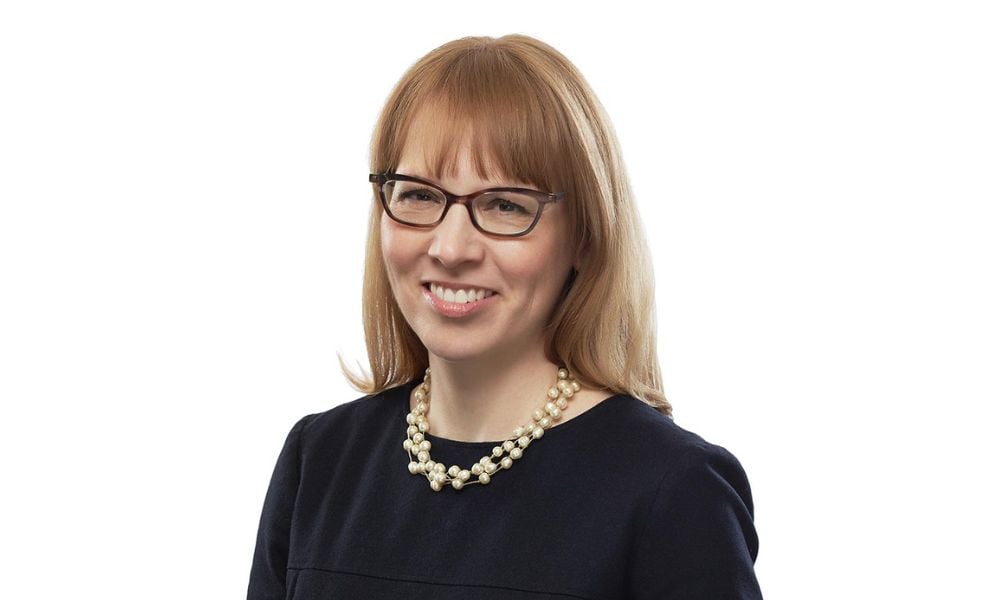Her in-house team's role evolved to better support the transportation government agency

According to Heather Platt, the chief legal officer at Metrolinx, the need for a formalized approach to establishing a robust commercial management practice became apparent around 2016-2017.
This was driven by the demand for commercial acumen and legal expertise and was an evolution significantly impacting the organization's structure, fostering cross-functional collaboration and timely legal involvement in projects.
"We are a complex public agency, and there's a need for a lot of commercial acumen in what we do,” Platt says.
Metrolinx initiated the development of commercial management teams across business units to address the gap. This model ensures that legal is involved at the right time, overcoming the inherent challenge of in-house lawyers having to determine when to engage in a project.
"We liken it to a stool with three legs,” adds Platt. “Where the business unit is the seat of the stool, but commercial management, procurement and legal are the support functions that enable success to happen. We've found that when those groups work together, it's helpful and drives that collaboration to make sure people are in the right place at the right time with the right information. What we've noticed on the enterprise side is that so much of what we're doing is not business unit specific. We've built the function within the business units. The next stage … is looking at it from an enterprise perspective.”
This expansion aims to recognize the complexity of the environment and better support cross-functional projects. For instance, when opening a new rapid transit line, considerations extend beyond the business unit's accountability to encompass fair payment systems, integration of Presto, and marketing team involvement in ridership and revenue analysis.
"It contributes to the long-term financial health of the organization and enables us to deliver what we need to deliver,” she says. “In the last year or so, when costs are going up, it's something that's important… looking at things through that lens. I think it's also important in terms of delivering and ensuring good outcomes for our projects and for everything we do.”
Alongside its impressive internal initiatives, Metrolinx has also seen its legal team scale appropriately to its growing mandate. Speaking to Lexpert, Platt emphasizes the need for in-house expertise as the organization has grown significantly.
“I also have commercial management functions and real estate and development within my portfolio,” adds Platt. “We’re recognizing the need for in-house to have expertise in a wide range of areas. Earlier, when we had a smaller team, we tended to be generalists – and then rely on external counsel for specialized advice. We still absolutely do that where necessary, and we have amazing relationships with external firms – they're phenomenal, and we couldn't do without [them]. However, we're seeing that there's more and more of a need, in certain areas, to have that in-house expertise. That’s meant that we've been able to bring people in and attract talent that have different backgrounds than you might have seen 10 or 15 years ago.”
However, this expansion and success have not been without challenges, partly due to the evolving contracting models tailored to project complexity. Exploring alliances and collaborative contracting models has been instrumental in unlocking better project outcomes.
"We use a variety of contracting models, depending on the nature of the project, to look at the appropriate allocation of risk,” adds Platt. “How do we get this built? What’s the best way to build it? That’s encouraged us to look to other jurisdictions around the world, look at other models to contract, using alliances, for example, which I think really [drive] better outcomes for certain projects.”
Cross-functional teams are vital to address these challenges and balance the many legal facets of projects. The constant learning and exposure to new legal areas also keep Platt’s job exciting.
"It's really about that team, making it work together and having a team that has broad experience, that has been really helpful,” Platt adds. [It’s about] recognizing the importance of all those parts and how they contribute to getting to that result. For me, that's been probably the most exciting part of my job. It’s constantly learning, constantly getting exposure to new areas of law. That’s the key thing I've seen – that cross-functional expertise is necessary.”
Metrolinx was the winner of the Singleton Urquhart Reynolds Vogel LLP Award for Construction, Infrastructure and Transportation Law Department of the Year at the 2023 Canadian Law Awards.










